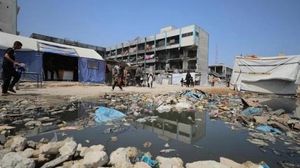The recent surge of mpox, formerly known as monkeypox, has led to increased vaccination efforts across Africa, particularly within the Democratic Republic of the Congo (DRC) and Nigeria. Amid growing public health concerns, officials are ramping up their campaigns, marking significant strides toward controlling this infectious disease.
On October 27, 2024, the DRC commenced its second phase of vaccination against mpox, following the initial round launched on October 5, which primarily targeted healthcare workers. This first phase successfully vaccinated about 40,574 individuals out of nearly 46,000, reaching approximately 88.3% coverage, as reported by the World Health Organization (WHO). During this new phase, the vaccination will now extend to populations deemed high-risk, which includes sex workers and those who have had contact with confirmed mpox cases.
Aubin Mongili, who oversees the vaccination efforts in North Kivu, emphasized the importance of community engagement. "Today, we wanted to integrate community engagement. There is sexual transmission for mpox, which is why we're particularly focusing on this demographic to limit the spread within the community," he said. Roger Kamba, the DRC's health minister, noted the requirements for the DRC healthcare system, stating the need for around 3 million doses of the vaccine to cater to approximately 2.5 million people.
Since the beginning of 2024 alone, the DRC has recorded 35,925 cases of mpox, including 7,534 confirmed infections and 1,006 fatalities. Amid these alarming statistics, the Africa Centers for Disease Control and Prevention (CDC) had previously declared the mpox outbreak across Africa as a Public Health Emergency of Continental Security.
Meanwhile, Nigeria is geared up to launch its own mpox vaccination campaign shortly, marking it as the third nation within the African Union to initiate this public health response, following the DRC and Rwanda. Health officials reported high-level discussions were held recently with the Africa CDC team, led by Deputy Incident Manager Professor Nicaise Ndembi, aimed at fortifying Nigeria's health response to the re-surgence of mpox.
The Nigeria vaccination initiative dovetails with the Africa CDC’s “New Public Health Order,” which pushes for enhanced preventative measures and disease response strategies continent-wide. The Health Minister's office indicated the importance of this campaign, highlighting its significance for public health safeguards as it aims to align health responses throughout the African Union.
Back in Uganda, two confirmed cases of mpox were reported recently, sparking concerns among health officials. Alfred Besigensi, the district health officer for Kabale, disclosed the patients were admitted to Kabale Regional Referral Hospital and had come from local health centers. This highlighted the necessity of heightened vigilance across the region, with local health departments amplifying surveillance efforts.
Mpox itself is caused by the monkeypox virus, which spreads through close contact with infected individuals. Symptoms include fever, swollen lymph nodes, and skin rashes, often exacerbated by transmission routes involving direct human interaction. For women, there’s also the risk of vertical transmission, meaning the virus can pass from pregnant individuals to their unborn babies.
Despite the mechanisms for its spread, public awareness and vaccination efforts represent significant steps toward containing the outbreak. While people across Africa face the looming threat of mpox, local governments, health authorities, and international organizations are joining forces to combat the surge efficiently. The combined efforts of vaccination campaigns, community outreach, and heightened disease recognition will be pivotal as the region fights this perilous public health threat.
Looking forward, the integration of preventative measures, healthcare access, and community education will be key components. By leveraging regional resources, establishing consistent monitoring systems, and fostering community trust, African nations are steadily repositioning themselves to tackle mpox more effectively.
Aside from immediate vaccination efforts, bolstering public health infrastructure will play a role in improving responses not only to mpox but also to future health crises. Continuous collaboration with international health bodies is equally important at this juncture, as it would allow countries to share data, research, and best practices.
With proactive measures being taken, the communities stand at the frontline of this fight against mpox, indicating not only the resilience of health systems but also the collective will to protect public health amid challenges. The upcoming vaccination drives across these nations represent not just a battle against mpox but also signify hope for enhanced health safeguarding across the continent.



